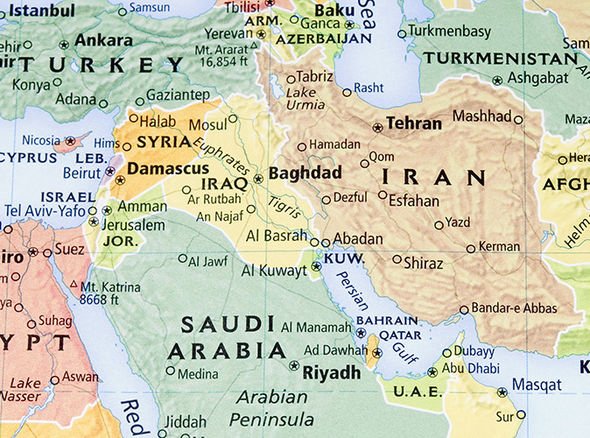Iran, Israel and the fraudulent nuclear apocalypse
EUGENIO GARCIA GASCON
Any Israeli politician, of whatever party and whatever the circumstances, has the habit of denouncing the Iranian nuclear program as soon as he opens his mouth, and assuring that Israel will not allow Tehran to manufacture nuclear bombs that constitute an existential threat to the entire region and for the entire planet. This official speech is remembered several times every day because it carries a series of important advantages for the Jewish state even if it is not related to reality.
For years the highest Iranian authorities have said actively and passively that they have no intention of manufacturing nuclear weapons, but that hypothetical possibility is a good pretext for Tel Aviv to keep fear in the body of countries like Saudi Arabia or the United Arab Emirates , which redounds to the benefit of Israeli hegemony, each year more consolidated in a larger geographical space.
A few days ago, the veteran journalist Ehud Yaari, who rants nonstop against Iran from Hebrew television Channel 12, made the following reflection, contrary to his usual discourse: I do not know of any country that has set itself the goal of manufacturing the atomic bomb, like India, Pakistan, South Africa or Israel, which has needed three decades to achieve it. Iran has excellent physicists and does not have the bomb, so the bottom line is that it does not want to make it, Yaari said.
Although Yaari's reasoning is elementary and easily understood, it does not serve Israel's interests. On the other hand, the permanent confrontation with Tehran is of great benefit to it, so the Israelis maintain strong pressure on Iran on all fronts, with assassinations, sabotage, attacks and bombings inside that country, with the false excuse that Iran wants the bomb.
The pressure is building every time the Western press suggests that the United States is about to sign a new nuclear deal with the Iranians. Then the Israeli politicians make incendiary statements, since their interest is that the West does not reach any agreement with Tehran, nuclear or otherwise.
A couple of years ago, during the campaign for the US elections, the Democratic candidate Joe Biden promised that he would restore the nuclear pact that the Republican Donald Trump broke following the instructions of Benjamin Netanyahu. It will soon be two years since Biden entered the White House and the deal with Iran is still not forthcoming, so it is legitimate to wonder if Washington really wants it or if it is playing the never-ending story.
All these entanglements lead to the central question of whether it would not be better for Tehran to build the atomic bomb once and for all. This would reinforce regional stability, since Israel would stop committing all those kinds of provocations that it commits on a daily basis. Since World War II, no country has used nuclear weapons and the bomb has become a decorative and stabilizing element wherever it has been manufactured.
Certainly, it would be best if no country had the bomb, but in this particular case the asymmetry between Israel and Iran only brings instability to the area and beyond. What's more, Israel's destabilizing policy suggests that it intends to destroy Iran in similar parameters to what was done before with Iraq and Syria, two rival countries that have been annihilated and neutralized.
The internal situation in Iran is not easy to solve, but it is clear that the activities of protest and rebellion that periodically take place in different parts of the country cannot lead to stability. Even assuming that the Islamic regime were to fall, as Israel intends, Iran would not enter a phase of stability, quite the opposite, creating a chaos similar to that of Iraq or Syria, or even more serious, which would surely take decades to disappear. This is Israel's interest, but we doubt that it is that of Europe and the US, although Europeans and Americans act according to Israel's interests and not according to their own.
To be more precise, naive and ramshackle Europe and the US are not really acting in the interests of Israel, but rather in the interests of its extreme nationalist and radical right. General Amos Gilad, a former head of the military secret services, maintains that Benjamin Netanyahu made a serious mistake when he confronted Barack Obama over the 2015 Iran nuclear deal, and that he made a second, no less egregious mistake when three years later he persuaded Trump to get out of the nuclear deal.
Iran only began to violate the nuclear agreement two years later, in 2020, and is now closer than ever to the bomb, although its leaders insist that if they wanted the bomb they would have made it long ago, as Ehud Yaari says. While Netanyahu argued that with a policy of "maximum pressure" Tehran would abandon its nuclear program, reality has shown that this is not the case and that this policy only serves to destroy Iran as Iraq and Syria were destroyed before.
Eugenio Garcia Gascon is Cirilo Rodríguez journalism award. He has been a Jerusalem correspondent for 29 years.













